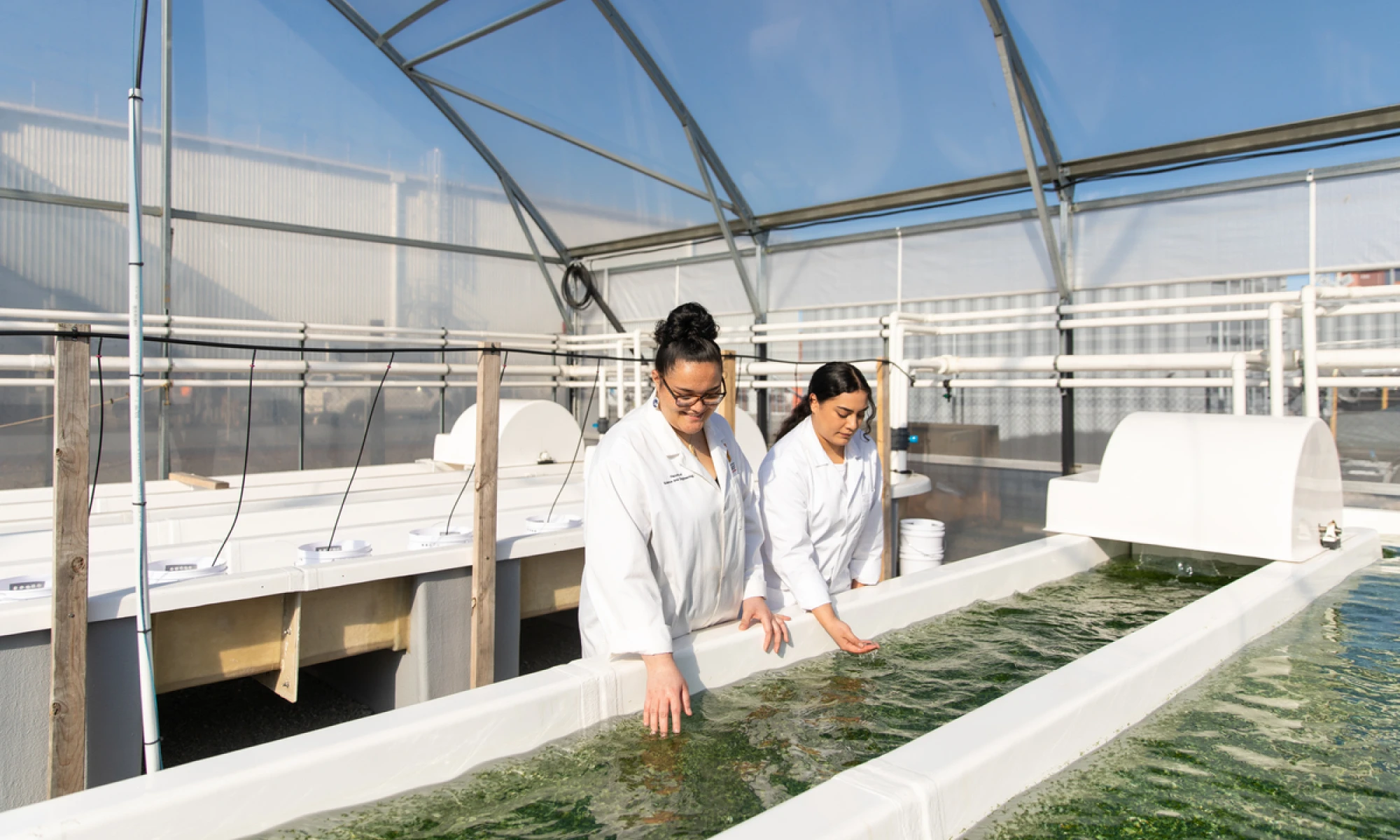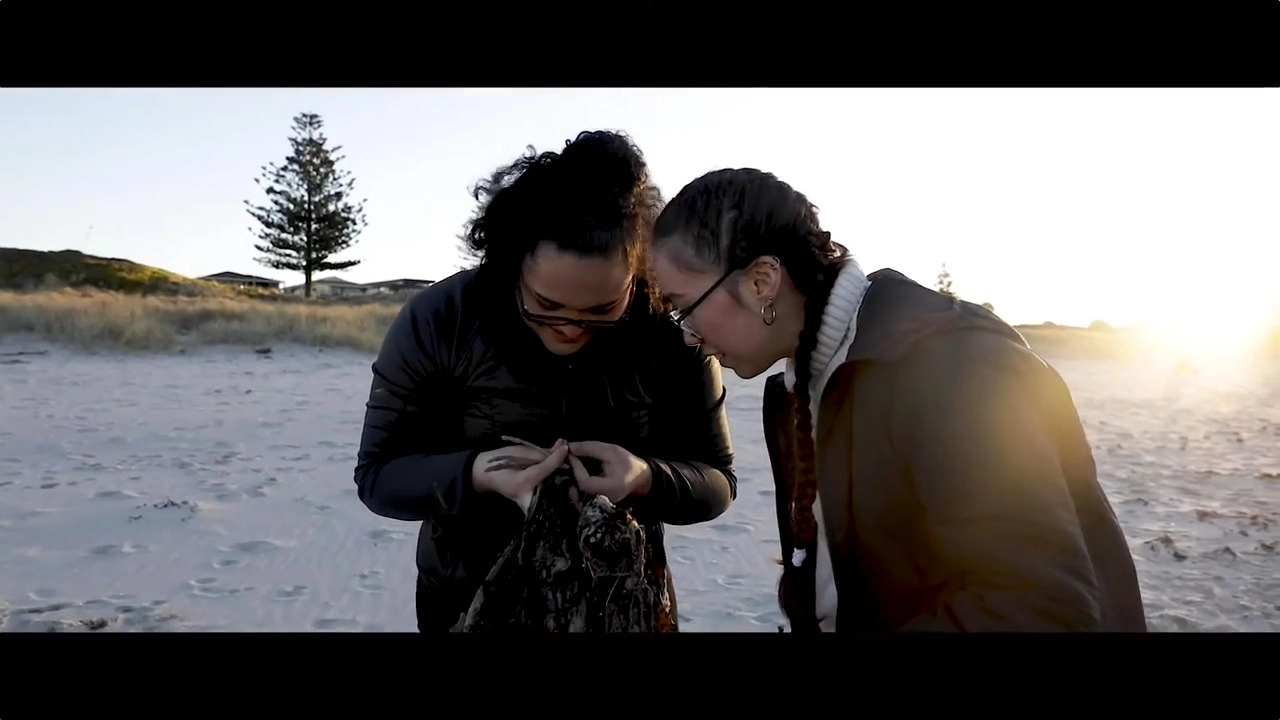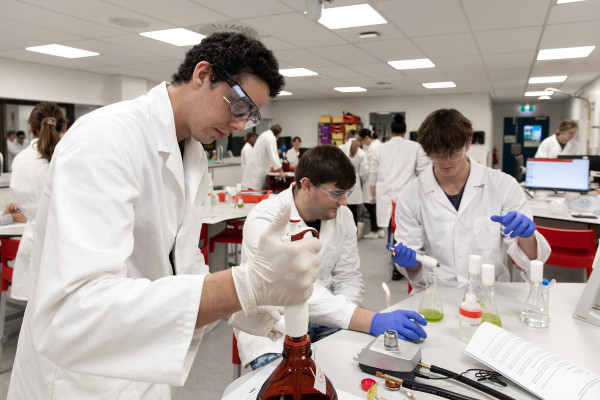Aquaculture

Why study Aquaculture?
Aquaculture is only available in Tauranga and will only be offered as a minor from 2025.
Study Aquaculture with us and equip yourself to make a meaningful contribution to the future of this crucial industry!
Delve into the fascinating world of reproductive physiology and developmental biology of early life cycle strategies used by aquatic animal species, and learn how this knowledge can be applied to the husbandry, breeding and sustainable production of species in aquaculture. Gain a deep understanding of marine ecology, biosecurity and legislation as well as key principles and practices in the aquaculture of fish, invertebrates and algae.
Identification of opportunities, issues and solutions relevant to the thriving New Zealand aquaculture industry and the “Blue Economy” forms part of your study, along with the need to create diverse aquaculture projects that are both profitable and ecologically sustainable.
Build a successful career
Students studying Aquaculture find employment in a range of primary industries (particularly marine and coastal-based activities). Future employers include the aquaculture and marine bioproduct industry, local and national government bodies (such as the Ministry of Primary Industries and Regional Councils) and both Private and Crown Research Institutes (such as NIWA, Plant & Food Research and Cawthron Institute).

Career opportunities
- Aquaculture entrepreneur
- Aquaculture policy advisor/manager
- Consultant
- Research Assistant
- Fishery officer
- Hatchery manager
- Researcher
- Science technician
- Saltwater production manager
- Quality control specialist
Tauranga
Facilities
 As an aquaculture student at the University of Waikato in Tauranga, you will have access to the University's well-equipped science laboratories – including the Coastal Marine Field Station and a dedicated facility for seaweed cultivation.
As an aquaculture student at the University of Waikato in Tauranga, you will have access to the University's well-equipped science laboratories – including the Coastal Marine Field Station and a dedicated facility for seaweed cultivation.
You'll be working alongside, and learning from, well-respected researchers, industry professionals and academics
Scholarships and prizes
Visit our Scholarship Finder for information about possible scholarships.